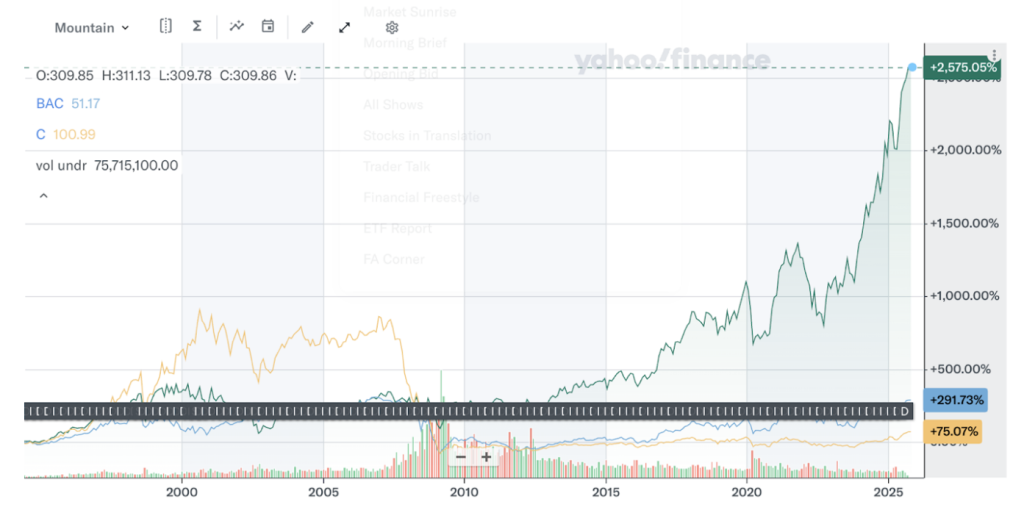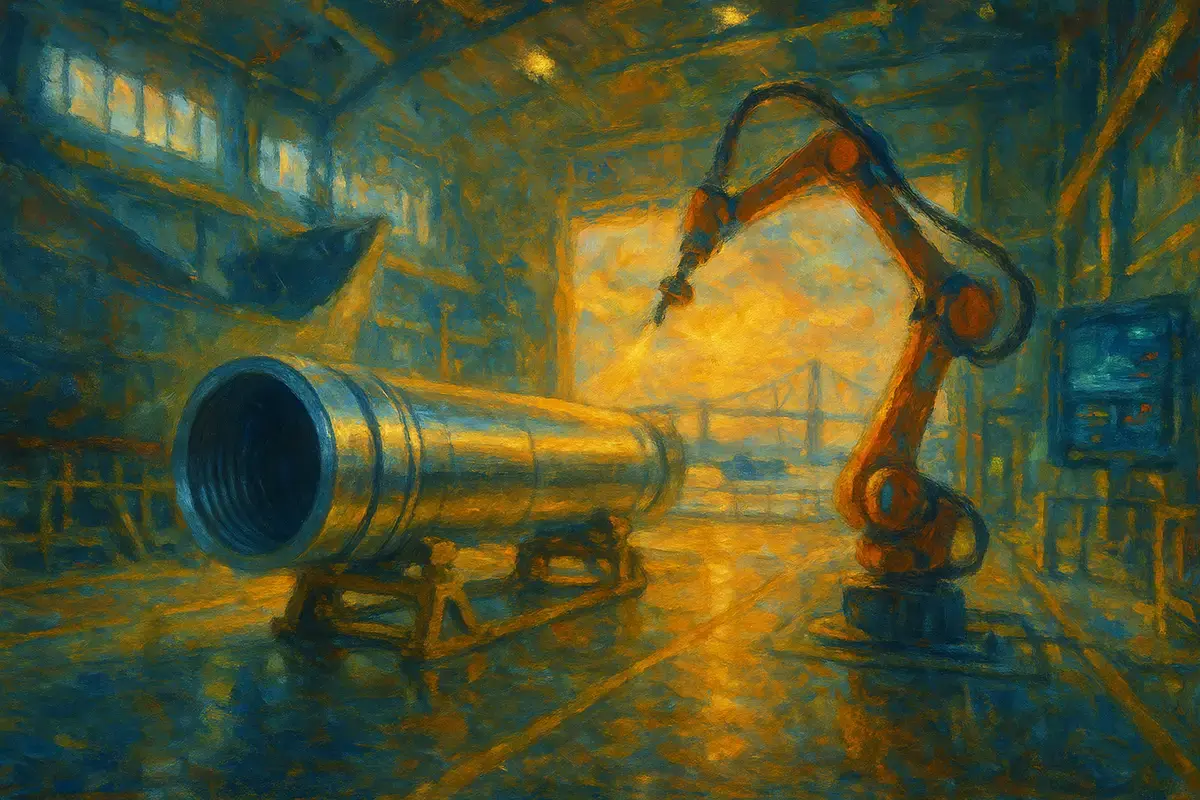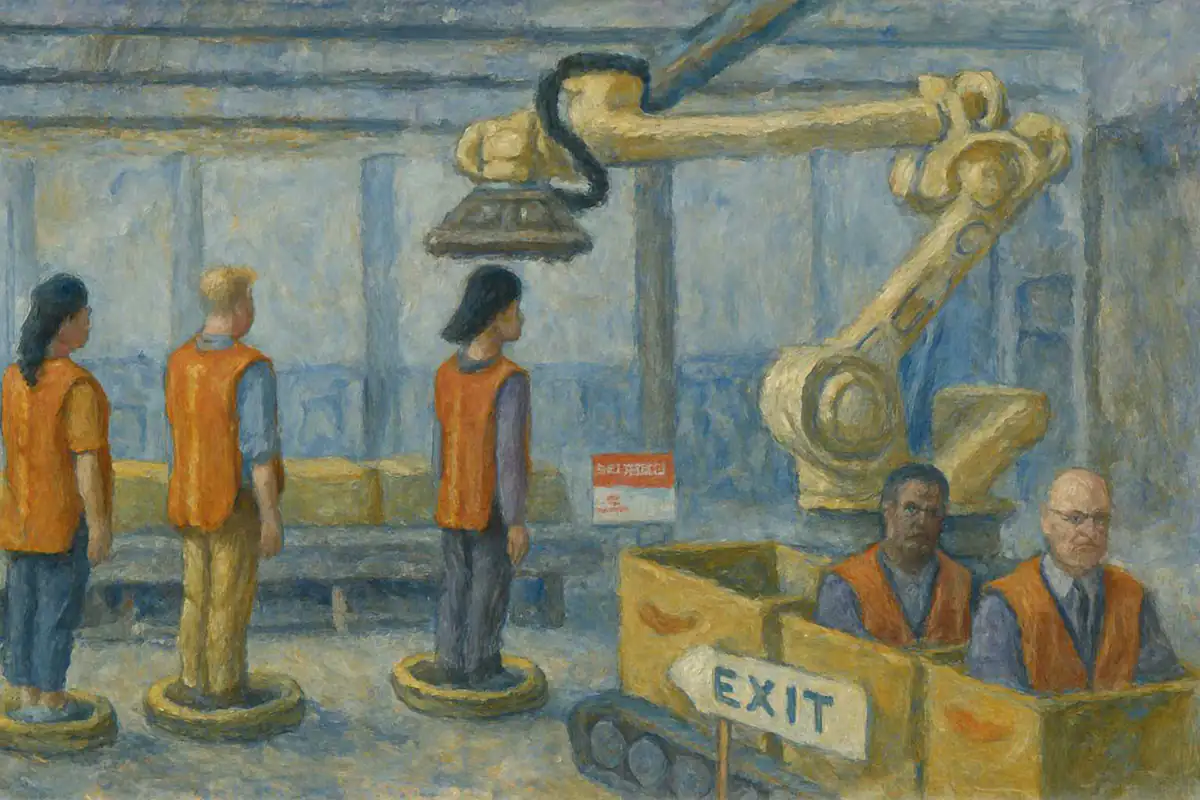Today I am going to share with you Part 2 of the Fall letter I wrote to IMA clients. Part 1 was hijacked by my writing muse, which took me on quite the detour through luxury watches and premium tonic water. But now that I’ve gotten that obsession out of my system, let me return to what I originally sat down to write about: Babcock, and in Part 3 I’ll discuss London and Scotland. You can read the full letter here.
—
What brought us to Scotland was Babcock. This is what I wrote to IMA clients in my last letter before the trip:
Babcock keeps reporting great numbers: In 2025, its revenues grew 11% and earnings 17%. The company announced something that (unfortunately) you rarely see with European companies: a £250 million share buyback (about 5% of its shares). It is a much better company today than it was 15 or even 5 years ago. It’s another testament that people make a huge difference. The credit goes to two Davids: David Lockwood and David Mellors.
Babcock was undermanaged by previous management. The Davids simplified the business, flattened the corporate structure (removing layers of managers – a recurring theme in our companies), paid down debt, and improved the company’s performance. Babcock started to deliver products on time and on budget, the relationship with the government (they lovingly call it “the customer”) improved, and now they’re getting more deals awarded. They’re getting these deals not just because UK defense spending is growing but because they’re a better partner for the government.
We’ve been asked by clients about our BAB position size. After I visited the company in January 2023, we increased our position. I have to confess, it’s psychologically difficult to buy stocks that have gone up – at the time, it had already increased by about 50–70%. But at this higher price, the company was actually a better value – the range of possible outcomes was much narrower, its business was improving, and we could see a clear path to success.
Also, there was a significant tailwind behind us. Babcock is the second-largest defense contractor in the UK. The world was getting less safe. At the time, Houthis (Yemeni terrorists) were attacking ships in the Red Sea. The UK is an island nation – its navy is paramount to its security.
The size of the UK navy has decreased by 70% since its peak in the 1990s. Seeing the size of Babcock’s shipyard in Plymouth (the southwest-most point of England) made me realize that this company has an irreplaceable asset that’s not going anywhere. It’s the only shipyard in the UK that can service nuclear submarines.
As we look at Babcock today, the stock is around £10, and our conservative 2029 earnings estimate is about £1 (we are projecting 8% revenue growth) with the stock worth £17-20. BAB, a virtual unknown in the US, was until recently a hated stock in the UK – a so-called “widow maker.” Anyone who bought it over a ten-year period until recently lost money on it. Most institutional and retail investors stayed away from it, and few analyzed it. This is how opportunity was created for us.
However, a rising stock price (in this case driven by much-improved fundamentals) altered the perception of the state of the company and brought investors back into the stock. In addition, now that BAB pays a dividend and has a market capitalization in excess of £5 billion, it has become investable for larger funds that avoided it in the past. In the eyes of investors today, BAB looks like one of the best-in-class defense companies that they can still buy cheap.
We’re going to be very patient with Babcock – it’s like a tanker that has turned and will be difficult to stop. Despite our gains and its size in the portfolio, we think this is an extremely high-quality business with recurring revenues and that there’s a lot more return to come.
When I visited Babcock’s facilities in Davenport (southwest England) in January 2024 during its investor day, it seemed like the company was finally headed in the right direction. Morale was high, the turnaround trajectory was clear, and all that was required was time to execute.
On this visit, the company felt like it was firing on all cylinders. The management team had created a lot of value and future optionality. There was speculation in the FT that one or more Scandinavian countries were considering placing large orders for new frigates, and Babcock had a good chance of being part of the development of new UK nuclear missiles.
At the Davenport event, I sat with Babcock’s chairwoman, Ruth Cairnie. We discussed stock buybacks, and she told me it was too soon – the company had to rebuild its reputation and balance sheet before returning cash to shareholders. When I saw her again, a year and a half later, in Rosyth, I thanked her for eventually authorizing the buyback.
There used to be a saying in the US: “You don’t get fired for buying IBM” – meaning IBM was a safe choice. Under the old management, as the Babcock CFO told me, you could get fired for hiring Babcock – it did not deliver on time, on budget, or on spec. That clearly wasn’t the case anymore. The government was actually seeking Babcock out for contracts.
Babcock’s shipyard in Rosyth was impressive. In addition to building frigates, it makes missile tubes for US and UK submarines, which require incredible craftsmanship and precision – the missile travels hundreds of feet underwater before breaking the surface and eventually heading into space. Even a millimeter of imprecision is magnified a thousandfold.
Babcock’s facility was not quite at Coca-Cola bottling levels of automation, but just a few dozen people operated many robots that semi-autonomously made these monstrous tubes. Sometimes little things (though missile tubes are not so little) tell you a lot about big things. If Babcock can do this well, no project is too complex for them.
A few dozen people attended the event. What I found interesting was that American and UK visitors were allowed to see the missile tube facilities, but for security reasons the French and other EU nationals were not. The UK is the US’s closest ally and their submarine programs are incredibly integrated, which may provide future opportunities for Babcock.
In my previous letter I discussed Huntington Ingalls’ capacity constraints in submarine and shipbuilding. Babcock seems decades ahead of HII’s shipyards (not difficult, as HII’s felt like it was stuck in the disco age – the only thing missing was a disco ball).
Although I suspect Babcock is decades behind Korean or Chinese shipbuilders, I see that as an opportunity. The company’s new management is obsessed with automation, but the transformation is just beginning. They showed us what they lovingly called a “spider monkey” robot that paints ships 10x faster than people.
I keep coming back to the importance of people.
Babcock’s previous management almost ruined the company by overpaying for an acquisition in an adjacent business they knew little about and had no right to succeed in. It became a master of none—the new business was written down to almost zero a few years later, it was a distraction, and mediocrity was allowed to infest its core defense business.
There’s plenty of debate in the US about management compensation. I honestly don’t care how much management makes as long as it’s based on performance. You can overpay a mediocre CEO by $1 million and underpay an excellent one by $10 million.
Compare JP Morgan to Citibank – if Citigroup hired JP Morgan’s CEO, today it wouldn’t be another irrelevant bank. Whether Jamie Dimon makes $10 or $100 million a year shouldn’t matter to JP Morgan shareholders – he created a truly remarkable and resilient company. Did he do it alone? Of course not – good CEOs attract and hire good people.
My problem isn’t how much Jamie makes, but how much Charlie Prince (CEO of Citi from 2003 to 2007) made. A few months before the Great Recession nearly took Citi down, Prince famously said (about subprime mortgages), “As long as the music is playing, you’ve got to get up and dance.” He almost danced Citi into the grave. While Prince was dancing, Jamie Dimon was tightening JP Morgan’s lending standards. Citi (yellow line) outperformed JP Morgan (green line) for a while – until it didn’t. The irony is that Jamie was fired from Citi a year before he took over BankOne, which later was acquired by JP Morgan.

The same applies to Babcock management – the two Davids (CEO and CFO) have done an incredible job. Now you don’t get fired for hiring Babcock – you get praised. Think of the jobs they’ve created (and will create), and how much stronger they’re making the UK.
One important quality good management needs to have is the ability to suffer. Yes, suffer! Doing the right thing—not dancing when the world is high on FOMO and engulfed in a giant mindless dancing orgy—is incredibly difficult and painful. It means giving up short-term profits to protect the business from future implosion, whether from bad loans or brand destruction. This requires both high IQ – to see that the party will end in tears, and supersized EQ with giant stamina for the pain of being a lone voice of reason.
I hope you can see why we have an obsession with people who run businesses, not just the businesses themselves.
Management’s ability to suffer is worthless if a company doesn’t have the right board of directors and shareholders, and if an investment firm doesn’t have the right clients. This is why effective and honest communication is essential.
Shareholders and the board trusted Jamie Dimon’s decision not to join Chuck Prince on the dancing floor. This is what gives Rolex an incredible, embedded in its structure, competitive advantage—the foundation has infinite life and is perfectly aligned with building a multigenerational brand.
There are many nuances buried in the above statements, but the message is the same: we want to own companies that are run by management that will not sacrifice tomorrow for today – have the ability to suffer, and where there is alignment between all constituents. Today, Babcock checks all the boxes.
The ability to suffer applies to investing as well—being rational and a lonely voice is incredibly difficult and painful (I can attest to it personally). As one value investor who chose not to “dance” and fill his portfolio with future dot-bombs during the dotcom bubble said, “I’d rather lose half of my clients than half of my clients’ money.”
Amen to that!
I am infatuated with this alignment. This is why I write exhaustingly long client letters – I want you to understand what you own and why, I want my stocks to become your stocks. This is why IMA does not employ a single salesperson—we want clients who choose us with conviction, not ones we’ve convinced to join us.
Most importantly, we want clear alignment between what we do and our clients’ expectations.
Our goal is to get rich slowly. It’s not that we’re opposed to getting rich fast, but that route is loaded with land mines. We are managing clients’ irreplaceable capital—quite frankly, all of my family’s net worth as well as the majority of IMA employees’—and we don’t want to blow up.
This means that at times, when the party is in full swing and everyone is dancing and everyone’s neighbor is minting money, we will be standing on the sidelines until the music stops. In those times, all the ones who are dancing will look brilliant, and we will look less than smart. We are okay with it, and we choose clients who are going to be fine with it, too.
This is where the investor letter ends, and my travel log continues in Part 3.
Key takeaways
- The ability to suffer is what separates great management from mediocre leadership—it’s the willingness to endure short-term pain for long-term strength.
- Babcock’s turnaround under “the two Davids” shows how discipline, humility, and patience can rebuild trust and performance in a company once considered a “widow maker.”
- Alignment between management, shareholders, and clients is the cornerstone of sustainable success; without it, even the ability to suffer loses its meaning.
- In investing, the ability to suffer means resisting the urge to dance when markets go mad, staying rational when it’s lonely and uncomfortable to do so.
- At IMA, this philosophy underpins everything—from choosing long-term partners to writing long letters—because getting rich slowly requires the courage to suffer intelligently.









0 comments
0